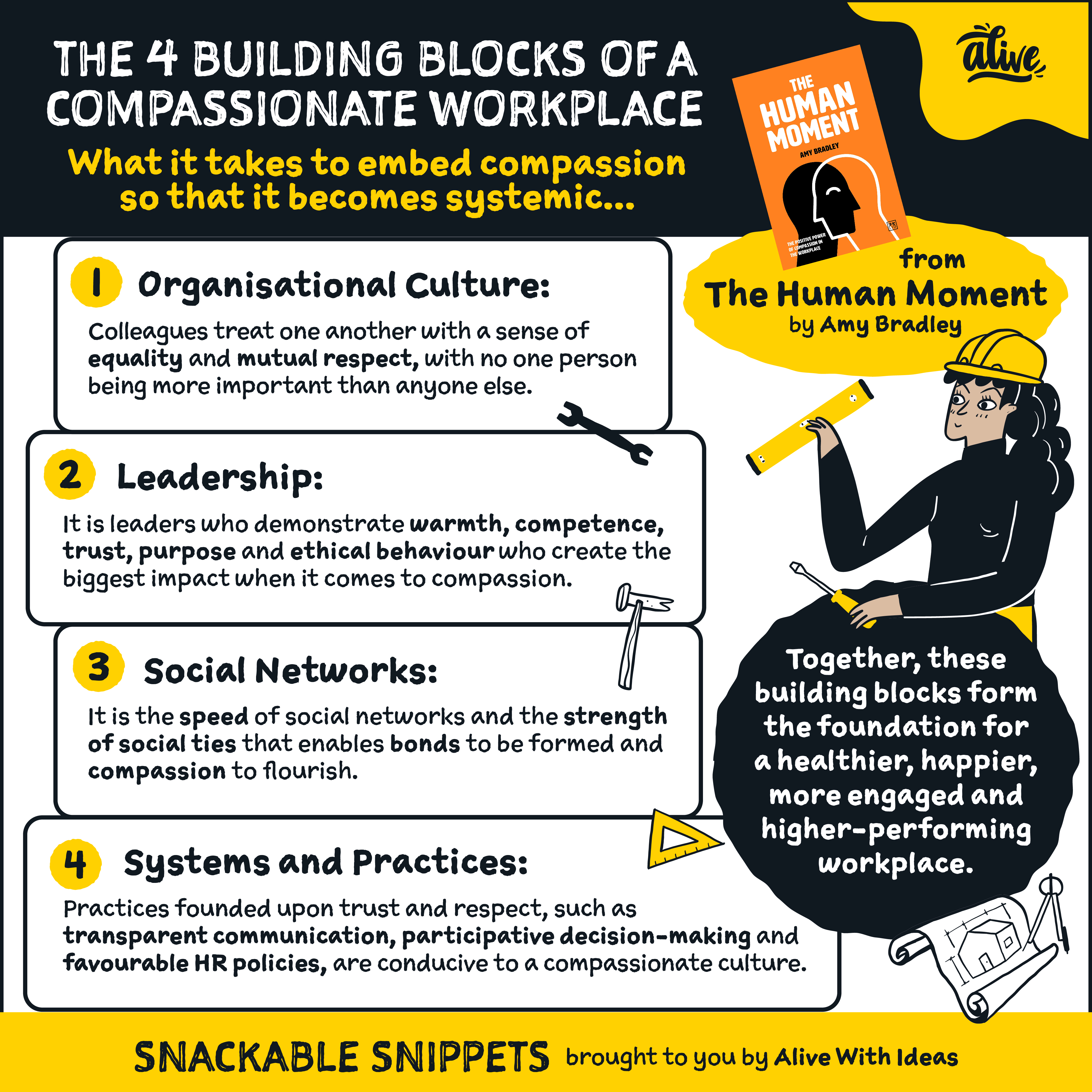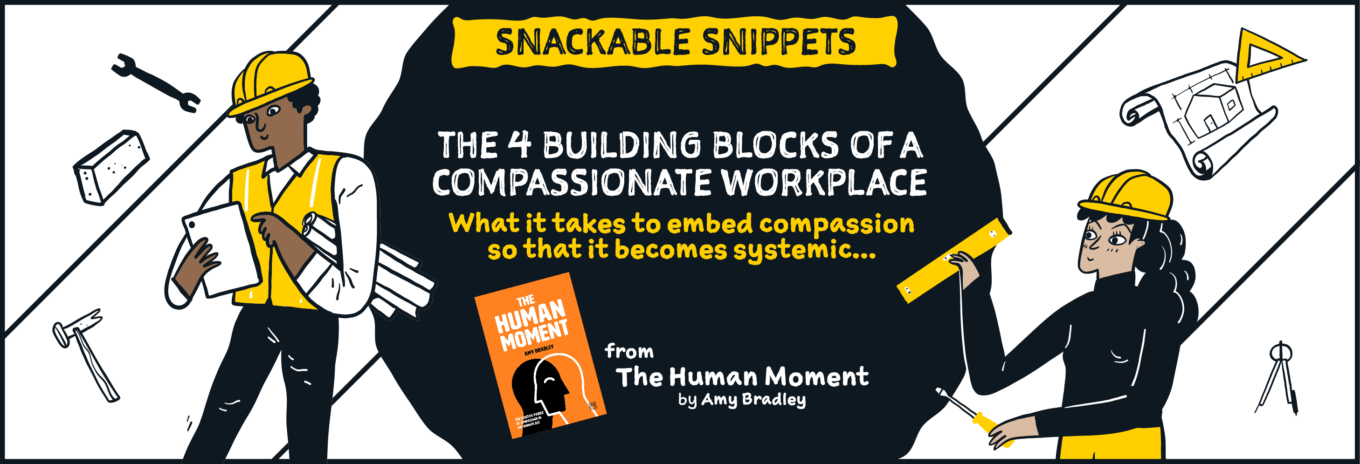Workplace absence will cost the UK economy £26 billion a year by 2030, with a major contributor being a rise in mental health issues associated with work and family pressures.
Making time for human moments could be the key to turning this sad statistic around.
The Human Moment by Amy Bradley is a practical guide to help leaders, managers, working professionals and the HR community to embed compassion in their organisations as a foundation for a healthier, happier, more engaged and higher-performing workplace. One that manages mental health issues with warmth, care and a human approach.
Organisations are emotional arenas, yet we display little emotion at work.
Although each workplace is unique, Amy argues that it is possible to foster care, kindness and understanding in every one of them, and these eight lessons that sit within the foundations of a compassionate organisation are a good starting point:
- Start at the top – leaders must legitimise the showing and sharing of feelings.
- Line managers are pivotal – their key question: ‘how can I help this person to have a better day?’
- Everyone is different – interpret policies accordingly; fairly, flexibly and creatively.
- Work is coping – ask questions with care and curiosity during personally challenging times.
- Back to work, not business as usual – consider the impact on all during and after an individual’s leave of absence.
- Say the right thing – offer to be a sounding board and listen without judgment.
- Get trained up – across a range of topics from breaking difficult news to understanding the common phases of grief.
- Make a safe space – create the time and trust for confidential, non-work conversations.

The 4 building blocks of a compassionate workplace from The Human Moment
By Amy Bradley
What it takes to embed compassion so that it becomes systemic…
1. Organisational Culture
Colleagues treat one another with a sense of equality and mutual respect, with no one person being more important than anyone else.
2. Leadership
It is leaders who demonstrate warmth, competence, trust, purpose and ethical behaviour who create the biggest impact when it comes to compassion.
3. Social Networks
It is the speed of social networks and the strength of social ties that enables bonds to be formed and compassion to flourish.
4. Systems and Practices
Practices founded upon trust and respect, such as transparent communication, participative decision-making and favourable HR policies, are conducive to a compassionate culture.
















